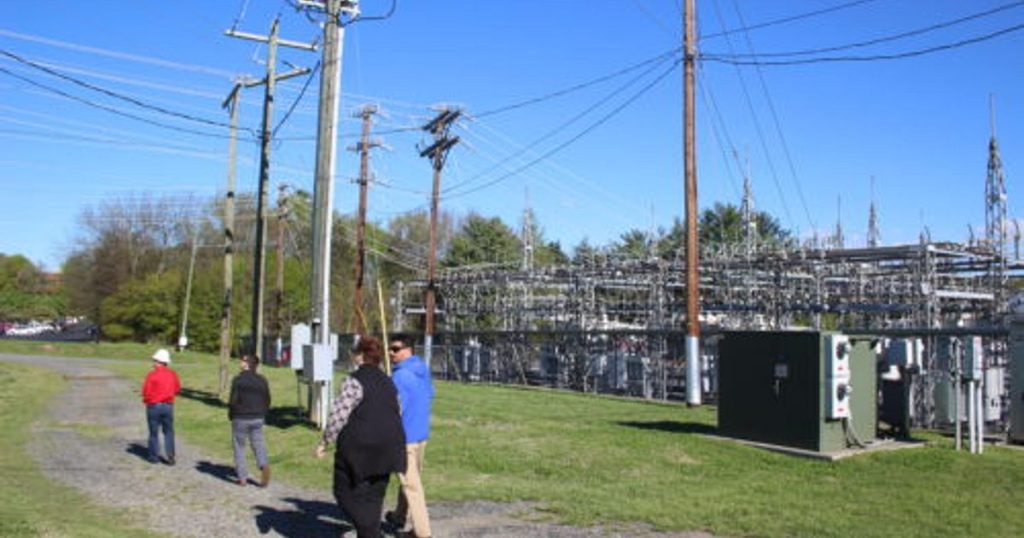North Carolina recently introduced its first-ever statewide electrification incentives, aimed at helping residents improve home energy efficiency and transition from fossil fuel-based appliances to electric alternatives. This bold move, called the Energy Saver North Carolina program, is a significant step in addressing climate change, lowering household energy costs, and promoting cleaner energy sources.
Introduction to the Energy Saver North Carolina Program
Launched in mid-January, the Energy Saver North Carolina program includes over $208 million in federally funded rebates designed to assist low- and moderate-income homeowners. These incentives encourage the adoption of energy-efficient electric appliances like heat pumps and electric stoves, replacing older, inefficient gas appliances.
Sophie Mullinax, the Chief Operating Officer of Solar CrowdSource, shared her personal experience during last month’s freezing temperatures in Asheville, North Carolina. While outdoor temperatures dropped to 9°F, the heat pumps at her home kept her warm without relying on a gas furnace. Mullinax, who has been involved in spreading the benefits of electrification, emphasizes that electric appliances are not only better for the climate, but also healthier, cost-effective, and more efficient.
Mullinax’s company, Solar CrowdSource, has partnered with local governments in Asheville and Buncombe County to support the community’s climate goals through electrification. The new rebate program will certainly help with these efforts, making it easier to convince homeowners to switch to electric alternatives.
The Impact of Electrification
The Energy Saver North Carolina program aligns with federal efforts to address the energy crisis and reduce greenhouse gas emissions. The program is funded by the Inflation Reduction Act—a significant piece of climate legislation passed in 2022, which allocates nearly $400 billion for clean energy and efficiency. Within this law, $8.8 billion is dedicated to improving home energy efficiency, focusing on making energy use more efficient in homes, where there is great potential for improvement.
In North Carolina, energy waste is a significant issue. Studies suggest that roughly 35% of home energy use is wasted, primarily due to inefficient heating and cooling systems, air leaks, and poor insulation. This is particularly concerning in North Carolina, where the state’s building codes for energy conservation are outdated. In fact, while homes in North Carolina rely less on fossil-fuel appliances than in other parts of the country, approximately 15% still use gas for cooking, and a significant portion of the state’s population heats their homes with fuels other than electricity.
State officials estimate that households using gas, propane, and other fuels contribute to 5% of the state’s greenhouse gas pollution. This contributes to both environmental harm and the rising energy costs for North Carolinians. A staggering 1.4 million people in the state spend an unreasonably high portion of their income on energy bills, according to the state’s Clean Energy Plan.
The Challenges and Potential Benefits of the Incentive Program
Despite North Carolina’s efforts to help low-income households with federal weatherization assistance, there has never been a statewide effort to incentivize the transition to electric appliances until now. The state’s legislature has even blocked local governments from imposing bans on new gas appliances or gas connections, further complicating the state’s clean energy push.
However, the new rebate program offers a significant contrast. The incentives in the program are substantial, with rebates of up to $14,000 for homeowners who switch to electric appliances. In addition, a second program within Energy Saver North Carolina offers rebates of up to $16,000 for homeowners who make efficiency improvements, such as adding insulation and plugging air leaks. The goal is to reduce energy use by at least 20%.
The program’s target is primarily low- and moderate-income households, with those earning less than 80% of the area’s median income receiving free assistance. Homeowners with incomes up to 150% of the median income will receive a 50% rebate.
Ethan Blumenthal, regulatory counsel at the North Carolina Sustainable Energy Association, highlighted the significance of this program as “the largest and first” in the state to incentivize the switch from gas to electric fuel sources.
The Push for Cleaner and Healthier Homes
The shift from gas-powered appliances to electric alternatives is driven by more than just climate concerns. Gas appliances, such as stoves and furnaces, emit harmful pollutants like soot and smog-forming particles. Studies show that these pollutants can be trapped indoors, far exceeding levels deemed safe for indoor air quality.
As a result, many supporters of the program, including the North Carolina League of Conservation Voters, are focusing on the health benefits of transitioning to cleaner energy sources. They have been actively promoting the new rebates, organizing community outreach, and helping homeowners understand the advantages of upgrading to electric appliances. This effort is particularly important for historically underserved communities like Edgecombe County, which has some of the highest poverty levels in the state.
Overcoming Challenges and Ensuring Success
Even with the program’s promising outlook, several challenges remain. The Energy Saver North Carolina program aims to double the size of the existing weatherization assistance program, which faces obstacles like a shortage of qualified contractors and public skepticism toward government initiatives. Currently, the state has about $38 million dedicated to weatherization assistance for low-income households, but the new rebate program is expected to more than double that funding, bringing an additional $41.6 million each year over the next five years.
To ensure success, officials are focusing on workforce development to train contractors to meet the increasing demand for energy efficiency improvements. The Department of Environmental Quality estimates that the program will create over 2,000 new jobs across the state, contributing to both economic growth and the advancement of clean energy initiatives.
However, the program’s success is not guaranteed. Much of the rebate funding depends on guidance from the U.S. Department of Energy, which is currently under the leadership of President Donald Trump’s appointees. Although contracts for the program were signed before Trump’s inauguration, his administration’s stance on clean energy policies could still pose a risk to the success of the rebate program.
Conclusion
North Carolina’s Energy Saver North Carolina program represents a major step forward in the state’s efforts to reduce energy waste, curb greenhouse gas emissions, and help families save on their energy bills. The program’s emphasis on electrification offers a promising way to transition to cleaner, healthier, and more efficient homes. As the program rolls out, it will not only help the environment but also create significant job opportunities, benefiting both communities and the economy in the long term.
Disclaimer – Our editorial team has thoroughly fact-checked this article to ensure its accuracy and eliminate any potential misinformation. We are dedicated to upholding the highest standards of integrity in our content.





More Stories
North Carolina Launches Historic Program to Help Homeowners Switch to Electric Appliances
North Carolina Launches Historic Program to Help Homeowners Switch to Electric Appliances
North Carolina Launches Historic Program to Help Homeowners Switch to Electric Appliances